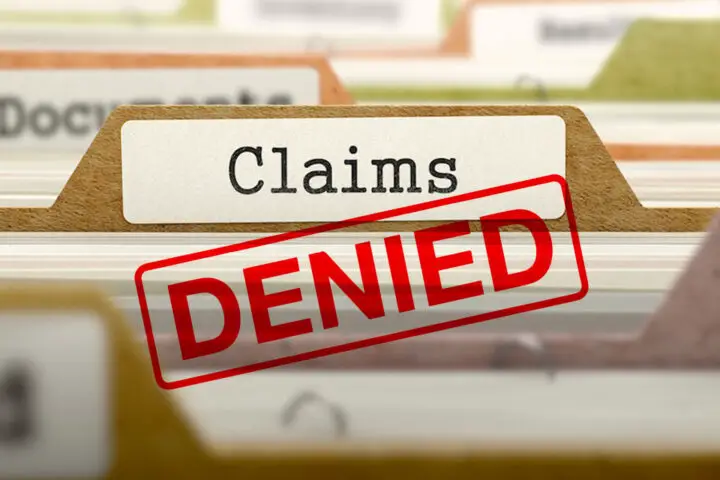Is It Necessary to Notify the Insurance Company After an Accident?

Any person who has been involved in an accident should file a police report and contact the insurance companies of the parties involved after being seen by a medical professional. Many times, people assume they don’t need to take this step if the property damage was minimal and nobody sustained injuries. However, injuries may take a few days to become evident. Furthermore, a person may take their vehicle to have minor damage repaired, only to discover this damage is more extensive. They may then choose to file a claim.
Being proactive helps to protect a person’s rights. However, people often have questions regarding the types of claims, the claims process, and more. Upon reviewing the material below, read the latest information from Nicolet Law.
Types of Claims
An insurance claim serves as either a first-party or third-party claim, depending on which company the individual files with. When a person files a claim with their personal insurer, it falls under the first-party claim category. If they file a claim with another person or entity’s insurer, they have a third-party claim.
The type of claim a person files depends on who bears responsibility for the accident. In addition, the type of accident and the coverage of each party involved determines the claim the victim will file. For instance, if a person has a single-vehicle accident, they file a first-party claim with their insurance provider. If another vehicle broadsides them, the victim files a third-party claim with the insurance company of the driver who hit them.
If a person sustains injuries while a passenger in another person’s vehicle, they file a third-party claim. The same holds when they slip and fall in a store or while in a business.
Contacting the Insurance Company

Always report an accident, even when there is no damage or injuries. Experts recommend victims file this report within 72 hours of the accident. However, review the insurance policy to learn about any notification deadlines. Always seek medical attention first, as health needs to be the top priority of everyone involved. Once this has been done, determine whether you need an attorney. When might legal guidance help?
If a person is unfairly held accountable for an accident, it’s best to consult with an attorney before speaking to the insurance companies. Insurers put their own interests above those of their clients. One wrong word could lead to a claim being denied. The attorney ensures the parties involved know what to say and not to say when speaking with an insurance company.
Filing a Claim

Upon contacting the insurance company, a victim of an accident launches the claims process. Reporting the accident leads to a claim being opened. The insurer then begins an investigation, and the victim may need to provide information to support their claim. This could include the names of witnesses to the incident, photos taken at the scene, a detailed account of what happened, and the police report.
Men and women should never provide more than the insurer requests. They need to avoid minimizing their injuries, and no person should take responsibility for the accident. Furthermore, don’t volunteer information. Keep answers short and only respond to the question asked.
Upon gathering information related to the claim, the insurance company offers a settlement. Victims need to recognize they aren’t required to accept the settlement. They may enter negotiations with the insurer or speak with an attorney to negotiate on their behalf. If the insurance company denies a claim, the victim also has options for pursuing the matter further.
Appealing the Denial of a Claim

Insurance companies deny claims for a variety of reasons. A victim may wait too long to file the claim or not provide the necessary documentation from medical professionals. In certain cases, the claim filed doesn’t qualify under the insurance plan in place.
When an insurance company denies a claim, they notify the individual responsible for filing the claim. This person may then file an appeal. The appeal process remains unique to the insurer, so it falls on the victim to read the policy and determine what steps they need to take. Consider consulting an attorney for help with the appeal.
In addition, determine whether you should file a complaint with the state agency responsible for regulating insurance companies. Another option involves suing the insurer and the client responsible for the accident. Talk with an insurance attorney to learn how to file this suit.
Determining the Value of the Insurance Claim

Men and women can calculate medical expenses related to the accident along with the wages they lost because of their injuries. Nevertheless, they rarely know how to put a figure on the pain and suffering they endured following the accident. In addition, there are other expenses the victim may not include in settlement negotiations. An experienced attorney helps the client determine how much they should request to cover all damages related to the accident.
Insurance companies look at the injuries sustained by the victim. They add up the medical expenses incurred because of the accident and multiply this number by 1.5 or 2. This amount is what they offer the victim for their special damages or those damages with finite, measurable costs. General damages, in contrast, are those that don’t have an established dollar amount. These damages cover things such as emotional distress.
When the victim sustains serious injuries, the insurance company multiples the medical expenses total by five or ten when the injuries are debilitating. Once they determine the amount to offer for medical expenses, they add in any wages lost because of the accident. This is the settlement formula most insurance companies use today. The victim, however, retains the right to negotiate a higher settlement.
If you need help to navigate your insurance claim, speak with an insurance attorney. Victims need to know their rights remain protected throughout the claims process, and the attorney ensures they are. Focus on your recovery and seek help to handle issues related to the claim. The attorney takes on this task for clients every day.
